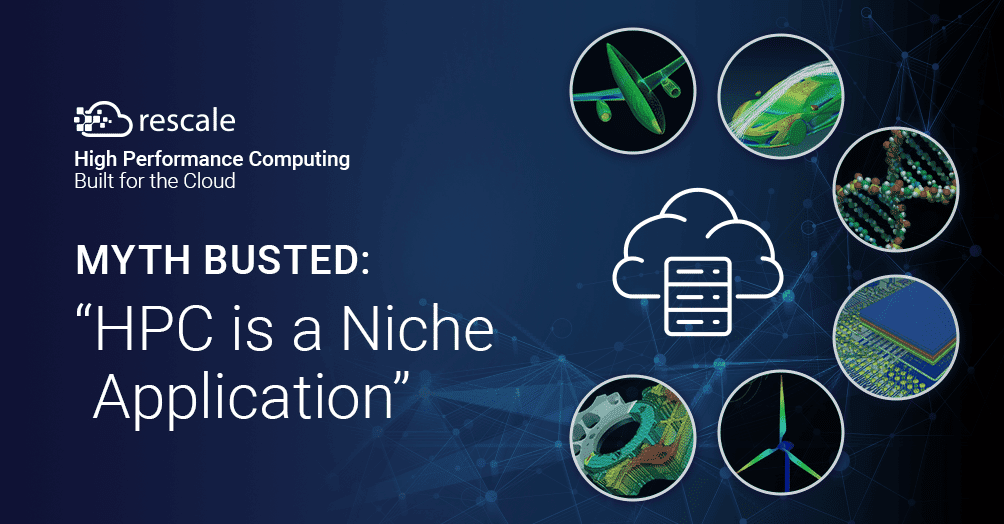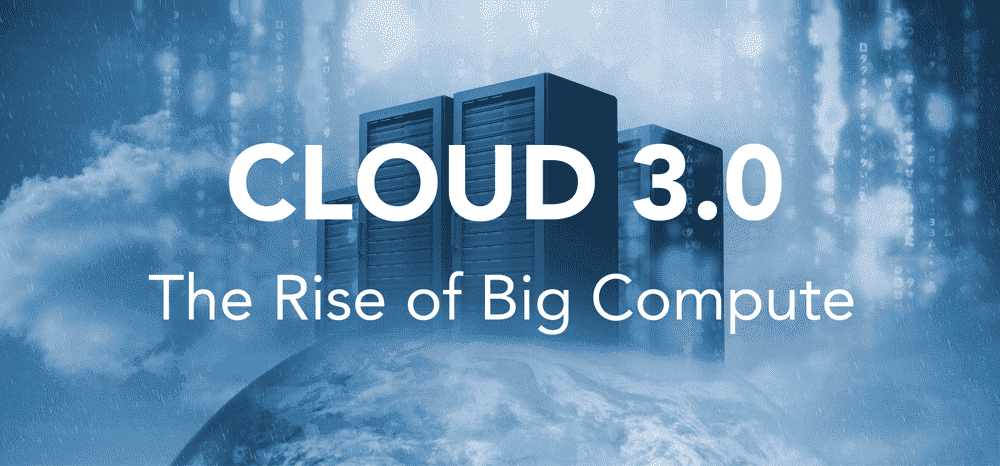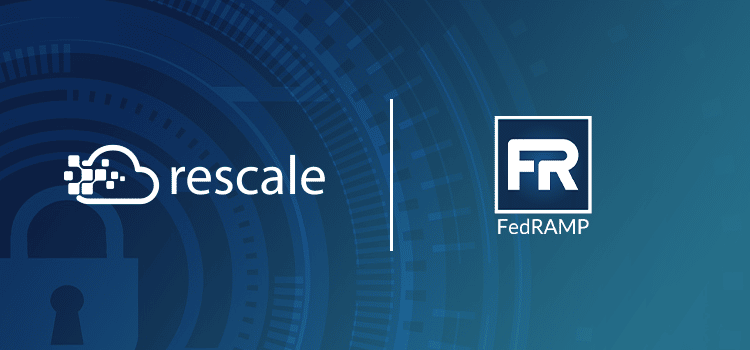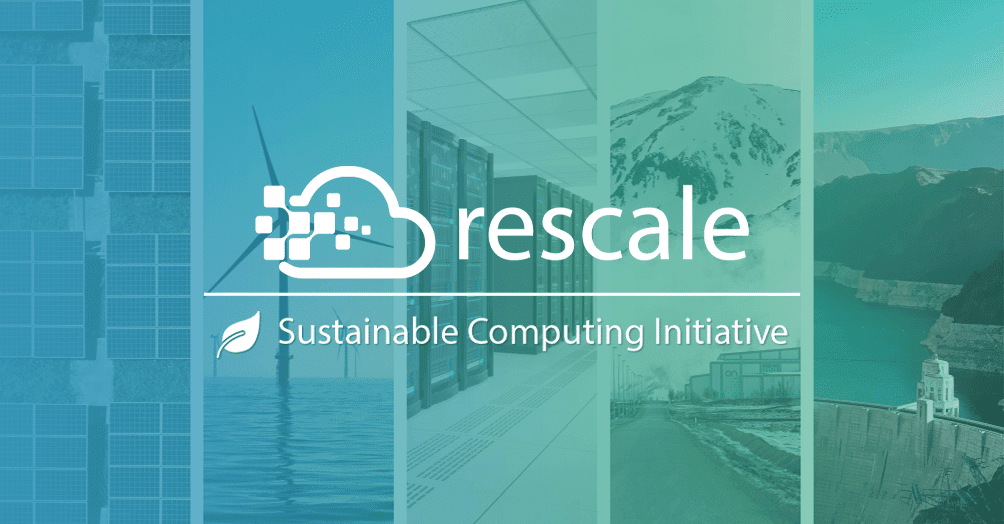Dispelling the Top 5 Myths of Cloud HPC- Introduction: Myth #1 HPC is a Niche Application
Editor’s note: This is the introduction to a 5 part blog series. Read the full report here.
Cloud HPC is Going Mainstream.
Are These Outdated Misconceptions Holding you Back?
Beliefs are opinions that the longer they are held, the more cherished they tend to become. The challenge is, as technology advances, a belief can easily morph into limiting biases. IT decisions that were once correct when first made years or even months ago, as time passes, become assumptions based on myth rather than factual assertions.
For example, a widely held belief in IT today is that high-performance computing (HPC) platforms can’t be accessed as a cloud service due to cost-performance shortcomings. The general assumption is that running cloud infrastructure is either not specialized enough or less efficient than utilizing on-premises resources.
In truth, however, cloud computing infrastructure and platforms to access compute resources continue to rapidly evolve and much of the innovation and growth in the past decade has been in cloud-based technologies. Factors influencing HPC applications range from the cost of cloud instances and the level of security provided to assumptions about the number of HPC applications any IT team might need to support have all changed in the last few months. It’s clear the time to revisit those HPC decisions has arrived.
With that premise in mind, there are at least five HPC assumptions that are now more myth than actual fact.
Myth #1: “HPC is a Niche Application”
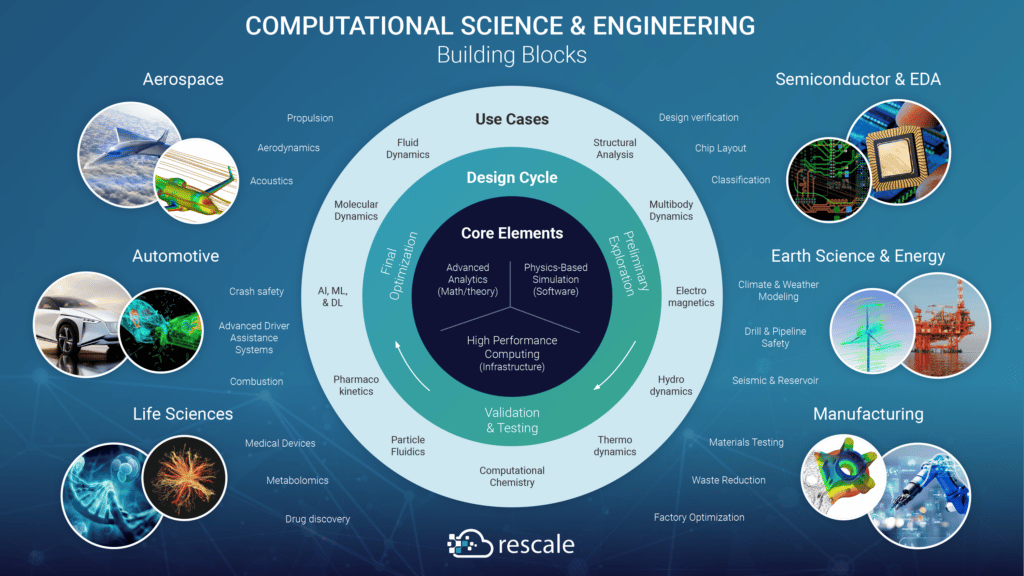
Not too long ago HPC was considered an IT niche that primarily addressed, for example, use cases involving life sciences applications created and managed by scientists and researchers that required access to supercomputers. However, with increased demand for simulation and modeling along with more reliance on machine and deep learning algorithms that are now almost routinely infused into applications, the need for HPC platforms to create AI models has greatly expanded. The worldwide HPC market already stands at $46.4 billion, according to a new report published by Intersect360 Research. That estimate, however, does not include AI infrastructure purchased by cloud service providers.
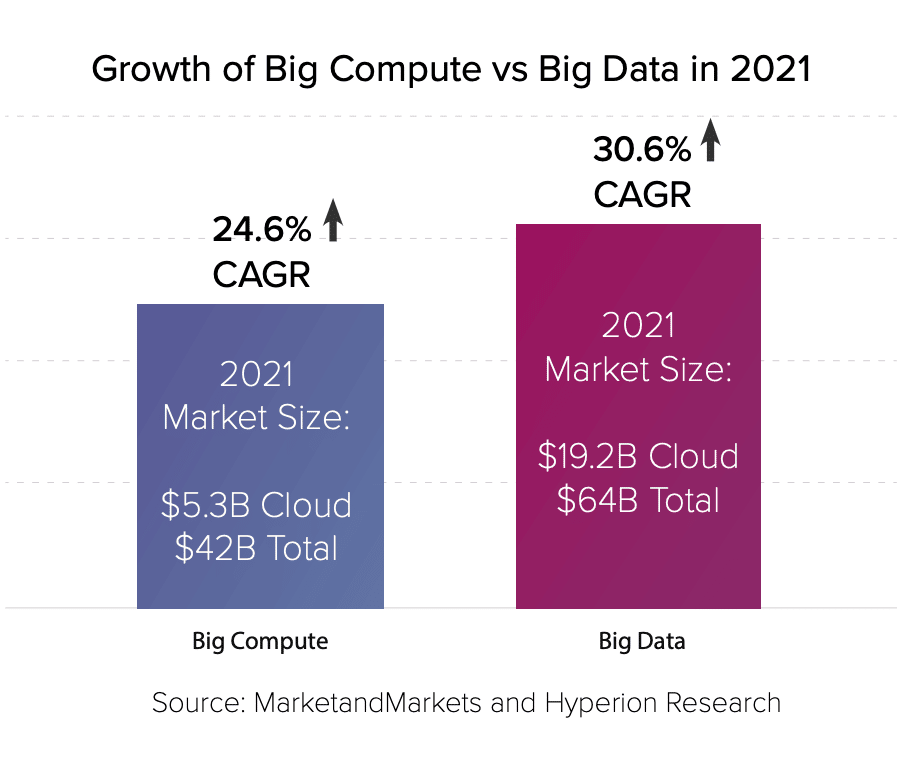
Any way it is measured, an IT market valued in the tens of billions is hardly a niche industry segment. Almost every vertical industry employs HPC platforms across a broad spectrum of engineering, research and development and product optimization use cases. Cloud computing platforms simply makes HPC more accessible to all types of development initiatives for a few dollars per hour. Clearly, the number of HPC applications that will be running in the cloud has already exploded as more researchers experiment with applications that they previously would not have been able to financially consider.
In fact, the easier it is for researchers to access computational resources the more likely it is that an organization will achieve its business goals. A recent 2022 State of Computational Engineering Report finds that 85% of organizations that either consistently achieve goals on budget (22%) or often achieve goals on budget (63%) enjoy easy access to computational resources.
HPC+AI/ML Capabilities Seen as Levers for Competitiveness and Innovation
HPC is also converging with AI and ML technologies which are being integrated into nearly every industry and stage of product development. As organizations invest more heavily in AI-enabled engineering, they will need increased access to the latest GPU and CPU architectures to meet the demand of their engineers and scientists. Being able to operate complex HPC practices efficiently is now a critical lever for new innovation and competitive advantage. Learn more about how Rescale is enabling new AI/ML use cases to help customers reach R&D breakthroughs at unprecedented speeds.
Continue reading about other myths about Cloud HPC:
- HPC is a Niche Application (myth covered in this blog above)
- Cloud is Not Cost-Effective for HPC
- Cloud Can’t Meet HPC Requirements
- Deploying HPC in the Cloud is Difficult
- Cloud is Not Secure enough for HPC

